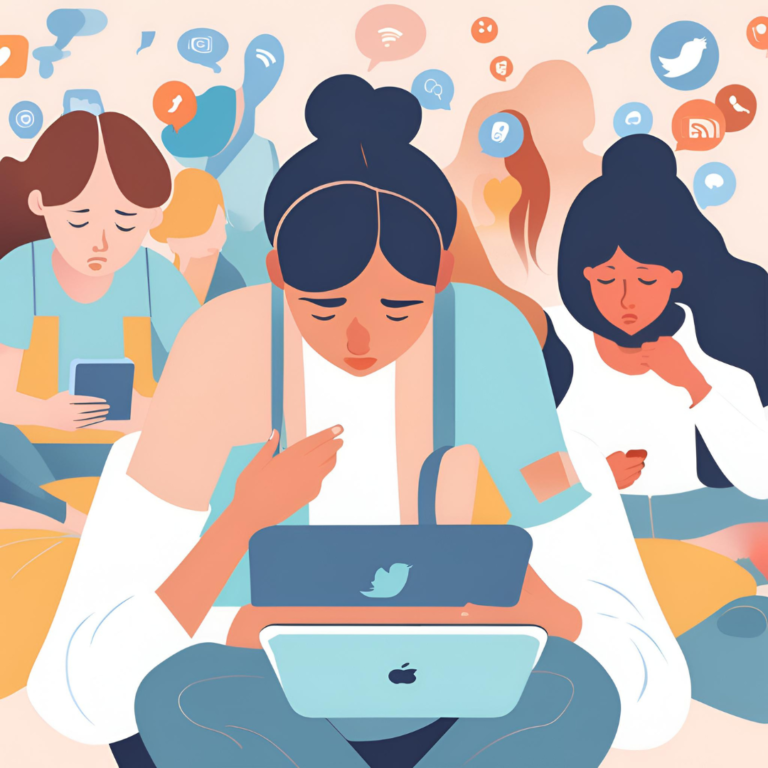By Dr. Amina Saeed

Writer is a freelance journalist who works on issues related to mental health and well-being. She is a yoga expert and conducts meditation and breathing sessions.
The term “aaj kal ke bachay” (kids these days) is loosely used by those from earlier generations, such as pre-millennials and pre-Gen Z individuals. Each era is distinct, and every generation has its own unique characteristics that may not always be relatable to others. Today’s era is particularly unique, with significant changes in schooling, entertainment, friendships, and communication. For much of this, we’re dependent on devices- sometimes to an unhealthy point of addiction.
Teenage years are a crucial and susceptible period in one’s life, as experiences during this time can significantly influence the trajectory of one’s future. This phase is marked by rapid physical and mental growth, with substantial brain development. The frontal cortex in the brain develops during these years and is responsible for behaviors, decision-making, risk management, self-control, and emotional regulation. Hormonal changes contribute to typical adolescent behaviors, but various intrinsic and extrinsic factors also highlight teenage vulnerabilities. It is essential to focus on fostering healthy development to support the formation of a resilient adult brain.
Social media has become an integral and indispensable part of everyday life, especially for teenagers who spend several hours on platforms like Instagram, Snapchat, TikTok, Twitter, and others. While social media offers significant benefits such as connectivity, information access, and support, it also comes with a high cost, impacting mental health. The emotional input from these platforms can significantly affect the development of young individuals.
I’m just scratching the surface here, but some of the effects are:
1. Users on social media often share only the highlights of their lives, which are carefully curated and sometimes far from reality. This creates pressure on impressionable minds to meet these unrealistic standards, leading to feelings of inadequacy and low self-esteem.
2. Social media allows users to hide behind a screen and say things they might not say in person. Words have power, and when used inappropriately, they can lead to cyberbullying, significantly impacting mental health.
3. Excessive use of social media, particularly before bedtime, has been shown to cause insomnia and poor sleep due to the blue light emitted from screens. When the natural sleep cycle is disrupted, mood disorders can worsen, affecting cognitive function, and impairing academic performance and overall well-being.
4. Increased social media usage has been linked to rising levels of anxiety and depression.
5. Daily exposure to social media content heightens peer pressure, prompting the need to constantly update one’s life. This can lead to uneasiness, poor self-image, and feelings of isolation.
6. Social media platforms are designed to be addictive, which can lead to compulsive behavior patterns that interfere with daily life and interpersonal relationships. This creates a cycle of loneliness, making genuine friendships increasingly rare.
7. While social media provides a platform for self-expression, it also pressures teens to conform to popular trends rather than embracing and developing their unique identities.
In conclusion, as the teenage brain undergoes intense development, shaping unique cognitive and behavioral traits, it is crucial to support their growth and prevent them from falling into cycles of comparison and despair.



